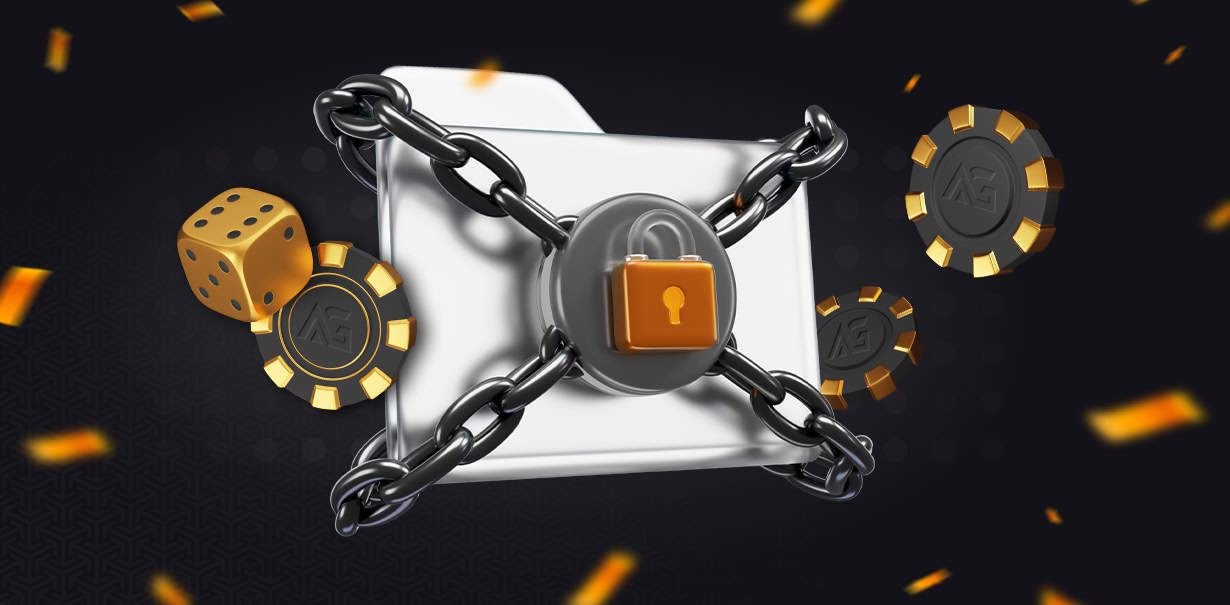The Importance of Data Security in the Casino Affiliate Industry

Affiliates handle sensitive information, including player data and financial transactions, making them prime targets for cyber threats. Implementing robust security measures ensures various things, including:
- compliance with regulations;
- builds trust;
- and safeguards the integrity of affiliate networks.
Let’s find out more about the casino affiliate industry, including what is data security and how to apply this concept in this context.
The growing need for data security in the casino affiliate industry
As the online casino gambling industry continues to expand, the need for data security becomes increasingly vital for affiliates. Casino affiliates often collect sensitive data, such as player identities, payment details, and personal preferences, which can be exploited by cybercriminals if left unprotected. With more people participating in online gaming, the volume of data exchanged grows, creating more opportunities for data breaches.
These breaches not only harm the reputation of affiliates but also lead to legal consequences and financial losses. Strengthening cybersecurity measures ensures that affiliates can safeguard customer information, comply with regulatory standards, and maintain their reputation in a competitive market. Affiliates must stay vigilant and implement secure protocols to manage sensitive data, protecting both themselves and their clients from potential threats.
Understanding the risks associated with data breaches in online casinos
Let’s discuss why is data security important. Data breaches in the online casino industry can have severe consequences for affiliates. When sensitive player data, such as personal information, financial details, or login credentials, is exposed, it can lead to identity theft, fraud, and financial losses. The affiliate business also suffers when its reputation is damaged, resulting in a loss of trust among clients and players.
Additionally, data breaches may trigger legal and regulatory penalties, especially if the breach violates privacy laws like the GDPR. Cybercriminals often target weak points in security systems, such as outdated software or unsecured data storage methods. Affiliates need to be aware of these risks and take proactive steps to protect their data, ensuring that their operations remain safe and compliant with industry regulations.
| Security Protocol | Description | Mitigation Strategy |
|---|---|---|
| Encryption (SSL/TLS) | Secures data during transmission, making it unreadable to attackers. | Use SSL/TLS for securing websites and sensitive transactions. |
| Multi-Factor Authentication | Requires multiple verification methods to ensure user identity. | Implement MFA for login processes to prevent unauthorized access. |
| Access Control | Restricts access to sensitive data based on user roles. | Implement role-based access control (RBAC) to limit data exposure. |
| Regular Software Updates | Keeps systems secure by fixing known vulnerabilities. | Schedule regular updates and patches to protect against exploits. |
| Fraud Detection Systems | Monitors for suspicious transaction activities or unauthorized access. | Implement real-time fraud monitoring systems to detect and block suspicious activity. |
| PCI-DSS Compliance | Ensures secure handling of payment card information. | Adhere to PCI-DSS standards when processing payments. |
| GDPR Compliance | Protects personal data and privacy of users, especially in the EU. | Implement strict data handling practices and enable data access/deletion requests. |
Protecting sensitive player information: best practices for affiliates
To protect sensitive player information, casino affiliates and casino data systems should implement a series of best practices aimed at reducing vulnerabilities and enhancing security. First, affiliates should ensure that all sensitive data is encrypted both in transit and at rest, preventing unauthorized access. They must also adopt strong authentication protocols, such as multi-factor authentication, to verify users and prevent unauthorized logins.
Regular software updates and patching are essential to close any security gaps in the marketing affiliate’s systems. Affiliates should also restrict access to sensitive information by implementing role-based access control, ensuring that only authorized personnel can view or manage specific data.
Additionally, educating staff and partners on casino gaming data security best practices is crucial in fostering a security-conscious culture. By employing these strategies, affiliates can minimize the risk of data breaches and maintain the trust of their players, ensuring the longevity and success of their business.
Encryption and its role in safeguarding casino affiliate data
Encryption plays a pivotal role in safeguarding casino affiliate data by making it unreadable to unauthorized users. When data is encrypted, even if a cybercriminal intercepts it, they cannot access the information without the decryption key. For affiliates handling sensitive player data, encryption should be implemented for both stored and transmitted data.
SSL/TLS encryption protocols should be used for securing data during online transactions and communication between websites and servers. Additionally, affiliates should consider end-to-end encryption for more sensitive data, such as financial transactions, to ensure that it remains protected throughout the process.
Legal implications of data security for casino affiliates
Casino affiliates face significant legal implications if they fail to protect sensitive data adequately. Data protection laws, such as the General Data Protection Regulation (GDPR) in the European Union, impose strict rules on how affiliates must handle personal data. Non-compliance with these regulations can lead to hefty fines and legal action.
In addition to privacy regulations, affiliates must also consider the legal implications of a data breach. For example, if player information is compromised, affiliates may be held liable for damages resulting from identity theft or financial losses. Legal consequences can include lawsuits, regulatory penalties, and loss of business.
To mitigate these risks, affiliates must ensure their online casino safety protocols align with relevant laws and industry standards. Implementing privacy policies, conducting regular security audits, and staying updated on legal requirements are essential for reducing the risk of legal issues related to data breaches.
GDPR compliance and its impact on casino affiliate businesses
The General Data Protection Regulation (GDPR) has had a profound impact on casino affiliate businesses, especially those operating within the European Union. GDPR mandates that companies, including affiliates, must protect the privacy and personal data of EU citizens. Non-compliance can result in severe penalties, including fines up to 4% of global revenue.
For affiliates, this means implementing strict data protection measures, such as obtaining explicit consent from players before collecting personal data and allowing individuals to access, rectify, or delete their data upon request. GDPR also requires affiliates to report data breaches within 72 hours, further emphasizing the need for robust data security practices.
How casino affiliates can ensure secure transactions
Ensuring secure transactions is vital for casino affiliates to protect both their players and their business from fraud and cybercrime. Affiliates should adopt secure payment gateways that use encryption and multi-factor authentication to protect sensitive financial information. Additionally, they should work with reputable payment providers that comply with industry standards, such as PCI-DSS (Payment Card Industry Data Security Standard), which outlines best practices for handling payment data.
Affiliates should also regularly monitor transaction activities for suspicious behavior, such as unauthorized payments or account takeovers, and implement fraud detection systems. Secure transaction methods not only protect the financial interests of players but also help maintain the affiliate’s credibility and reputation. By adopting these measures, affiliates can ensure that every financial interaction is safeguarded, ensuring that players can trust the platform and feel confident in their transactions.
The importance of secure payment gateways in the affiliate industry
In the casino affiliate industry, secure payment gateways are important for protecting both affiliates and players from financial fraud and data breaches. A secure payment gateway ensures that all financial transactions are encrypted, making it difficult for cybercriminals to intercept sensitive payment data. Affiliates should prioritize using gateways that are compliant with industry standards, such as PCI-DSS, to ensure that they follow best practices for handling financial information.
Educating staff and partners on data security protocols
Educating staff and partners on online gambling security protocols is crucial in creating a culture of security within the casino affiliate industry. All employees and business partners must be aware of the importance of protecting sensitive data and the role they play in maintaining security. Regular training programs should be implemented to keep staff informed about the latest threats, security best practices, and compliance requirements.
Building a data security-conscious affiliate network
Building a data security-conscious affiliate network is vital for maintaining the integrity and trust of the affiliate business. Affiliates should collaborate with partners who prioritize data protection and share the same commitment to safeguarding player information.
Additionally, affiliates can implement security audits and regular monitoring to ensure that all members of the network are following security best practices. Open communication about data online casino security is key to ensuring that every partner understands their responsibilities and the importance of protecting sensitive data.
FAQ
What are the three types of data security?
The three types of data security are confidentiality, ensuring data is accessible only to authorized users; integrity, ensuring data remains accurate and unaltered; and availability, ensuring data is accessible when needed by authorized users, even in case of technical failures or attacks.
Why is big data security important?
Big data security is essential to protect sensitive information from cyber threats, prevent unauthorized access, and ensure data integrity. As large volumes of personal, financial, and business data are collected, securing it is crucial to maintain privacy, comply with regulations, and prevent data breaches that could lead to severe consequences.
How do I know if an online casino is safe?
To determine if an online casino is safe, check for proper licensing from reputable authorities, read user reviews, ensure they use SSL encryption for secure transactions, and verify compliance with regulations like GDPR. Trusted casinos also offer transparent terms and responsible gaming practices.
How much security do online casinos have?
Online casinos typically implement robust security measures such as SSL encryption, secure payment gateways, and strong authentication protocols. They also undergo regular audits to ensure fair gaming and comply with regulatory standards. However, security levels can vary, so it’s important to choose licensed, well-reviewed platforms.



